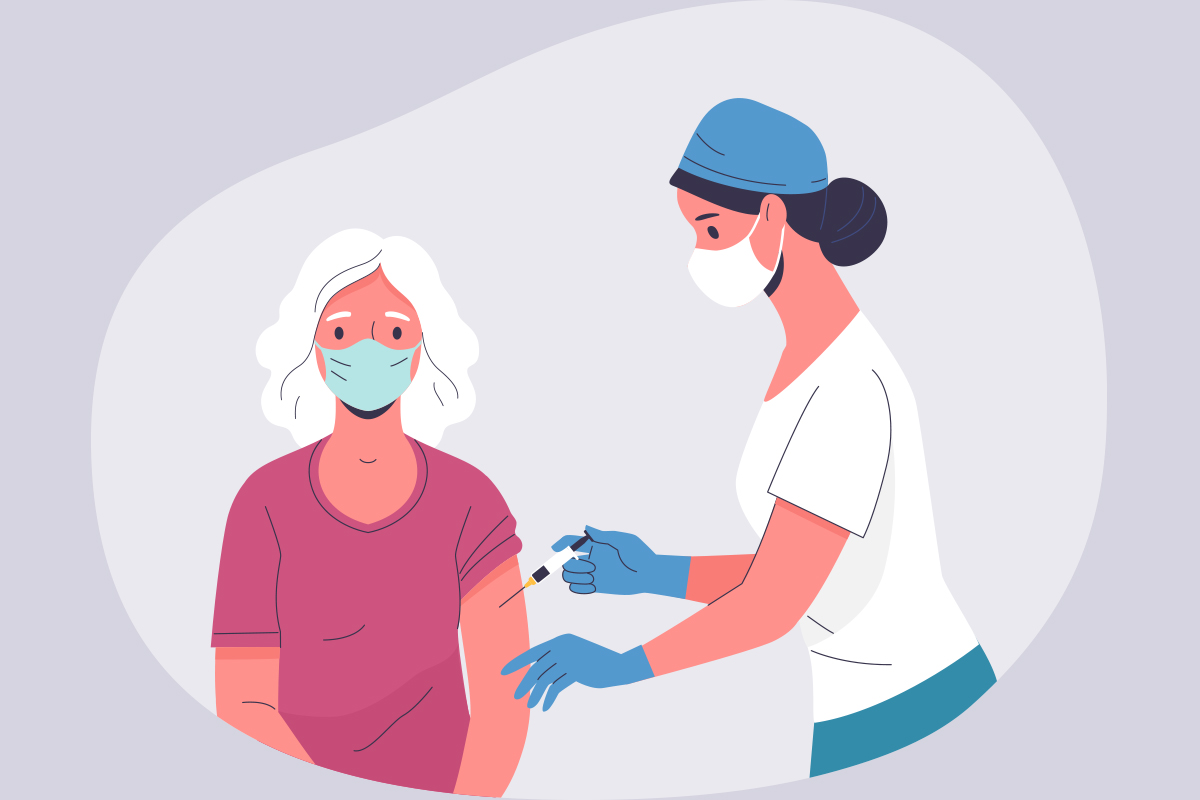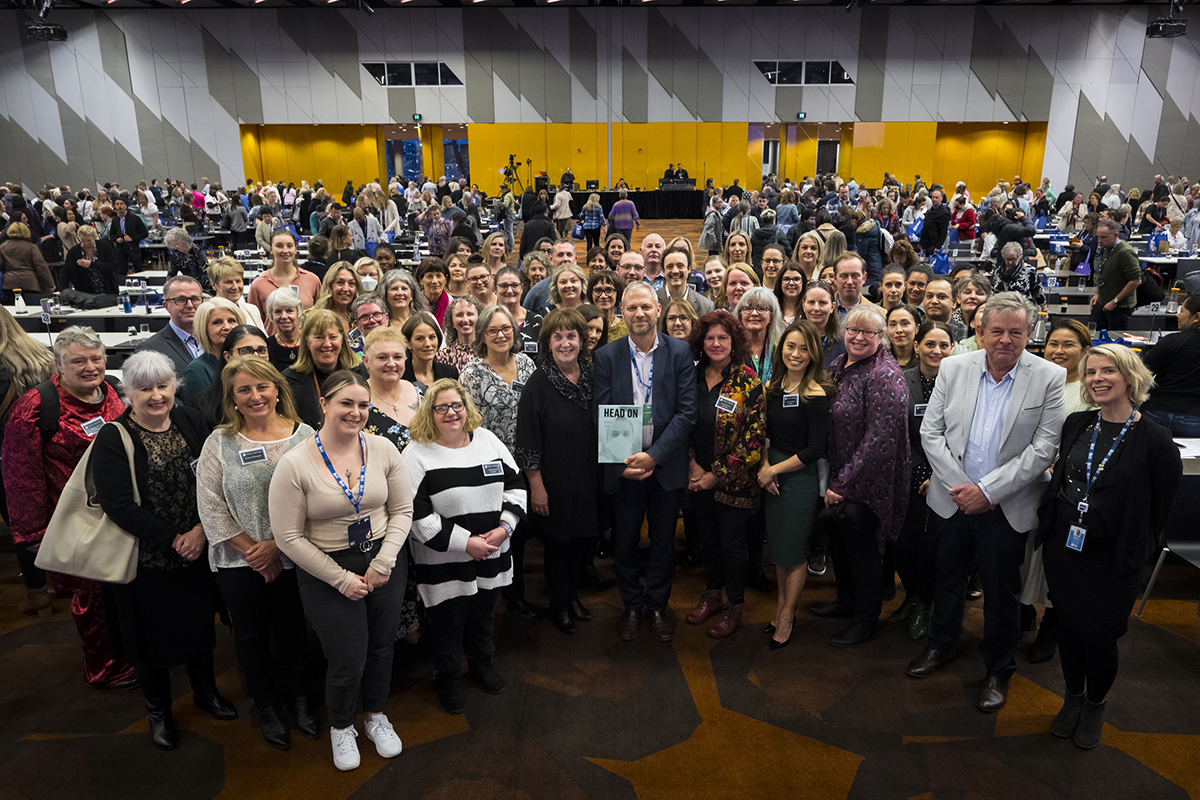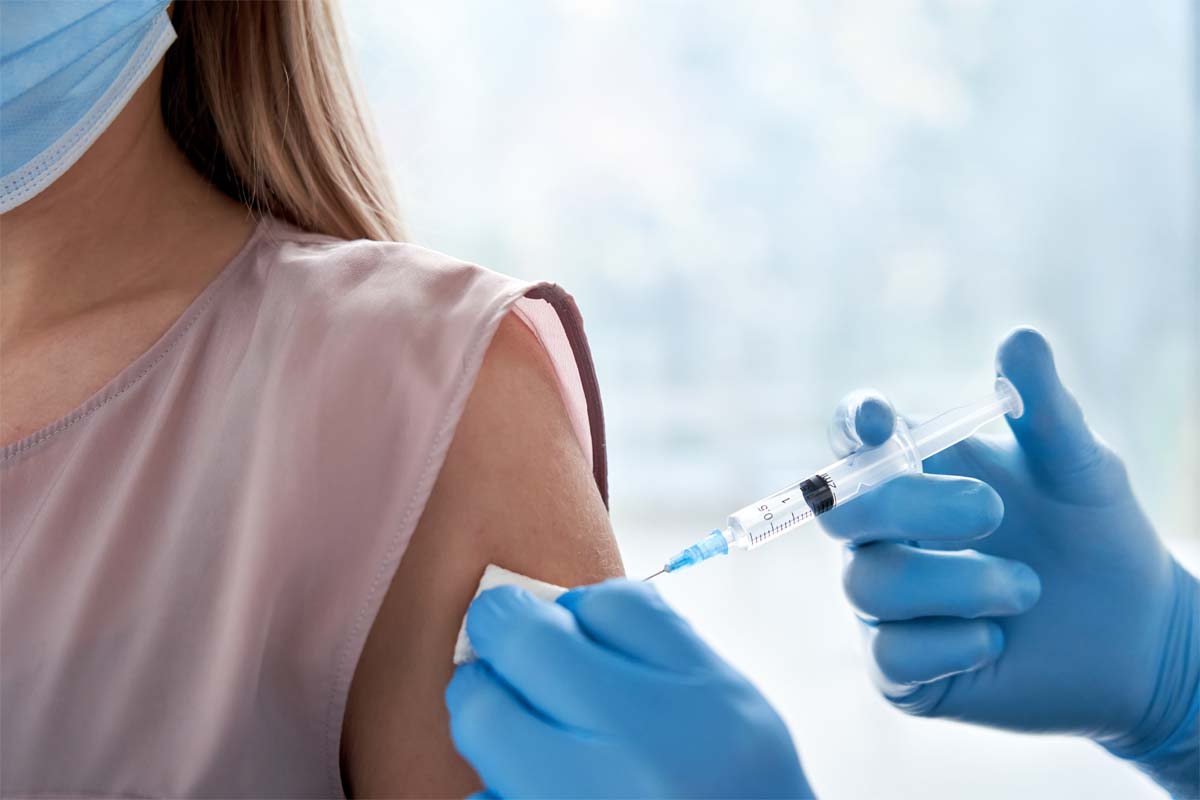
Shutterstock image
We’ve all heard of virulent anti-vaxxers but it’s the ‘maybes’ who are uncertain about vaccination who may pose the biggest threat to vaccination programs.
As the effectiveness of vaccination programs relies on ‘herd immunity’ – usually 60-70 per cent of the population (1) – the effort against COVID-19 in Australia relies on enough Australians being prepared to get vaccinated.
Samoa’s tragic 2019 measles outbreak occurred because the population’s vaccination rate of 31 per cent was too low to achieve herd immunity against the disease.
Within Samoa’s population of only 198,000, the outbreak claimed 83 lives, many of them children under 5, more than 5700 people were infected and nearly 1870 people were admitted to hospital (2).
Australian nurses as part of Ausmat teams did extraordinary and traumatic work nursing the Samoan community including these children who died.
In their paper Challenges to creating herd immunity to SARS-CoV-2 infection by mass vaccination, researchers at London’s Imperial College explain the direct relationship between vaccine efficacy and duration of protection, and the percentage of the population who need to be vaccinated to achieve herd immunity against SARS-CoV-2, the coronavirus that causes COVID-19. (3) The less efficacy and duration of protection of the vaccine, the higher the percentage of population needs to be vaccinated to protect against the disease. They conclude that broad acceptance of vaccination is critical to stopping the transmission of the virus.
But studies have shown the number of Australians who are ‘vaccine hesitant’ about the COVID-19 vaccine is growing.
The vaccine hesitant range from those with delayed acceptance to outright refusal of vaccines, despite availability of vaccine services.
Studies conducted in Australia indicate a potential drop in support for COVID-19 vaccination, with one study in April 2020 finding 86 per cent of respondents willing to vaccinate and a separate study in June finding 75 per cent willing to vaccinate (4).
In May 2020, as part of a larger survey about a broad range of topics by University of Western Australia researchers, 65 per cent of approximately 1300 Australians were willing to be vaccinated against COVID-19 and 27 per cent were uncertain.
In November 2020, the number willing to be vaccinated had dropped to 56 per cent and the ‘uncertains’ had risen to 31 per cent (5).
Compared with committed vaccinators, the ‘uncertains’ were more likely to be female, to not perceive COVID-19 as a severe infection, to be less trusting of science, and less willing to vaccinate against the flu, the research found.
But compared to anti-vaxxers, the ‘uncertains’ were more likely to see COVID-19 as a severe infection, be more trusting of science and more likely to vaccinate against the flu.
Research commissioned by the Federal Department of Health in late 2020 found that women in their 30s were most likely to be concerned about vaccine safety, with 42 per cent of women aged 30-39 holding safety concerns (6). This demographic is among those specifically targeted in a Federal Government education campaign about vaccination.
In late February, ANMF (Vic Branch) shared with members a Murdoch Children’s Research Institute survey which seeks to understand healthcare workers’ information needs to make decisions about getting vaccinated. The information gleaned from the survey will help shape communication messages and resources to support Victoria’s COVID-19 vaccination program.
Doubt about vaccines is as old as vaccines themselves. After Dr Edward Jenner invented the smallpox vaccine in 1796, a mocking cartoon depicted cow heads erupting from the bodies of people who received the vaccine (7).
Vaccination myths are also persistent. The idea that the measles, mumps and rubella (MMR) vaccination causes autism still circulates despite a slew of studies that show no link between the vaccination and autism. These studies include a 2014 meta-analysis of studies involving more than 1.3 million people (8).
Andrew Wakefield, the doctor who published the original research linking the MMR vaccination to autism in 1998, was later found to have a conflict of interest; he had patented a measles vaccine of his own – and his paper was based on fraudulent data. The Lancet retracted his paper in 2010 and the United Kingdom’s General Medical Council permanently pulled Wakefield’s medical license (9).
Despite this, the vaccination/autism myth continues and the incidence of measles, which was once eradicated in developed countries, is again growing. In the first three months of 2019, more than 100,000 measles cases were reported worldwide — up nearly 300 per cent from the same period in 2018, according to the World Health Organisation (10).
Part of the reason vaccination myths continue to circulate is because it’s easy to spread them via social media. But early in 2021 Facebook banned all vaccine misinformation, including about COVID-19, that has been debunked by public health experts. Claims that vaccines contain microchips and cause autism are among the posts that will be targeted under the new rules (11).
So what is it that influences whether people feel confident to get vaccinated or not? The University of Florida’s Center for Public Interest Communications says it’s about how people see the world, the choices of people like them, whom they trust, their perceptions of risk, consistency of message and convenience of actually getting the vaccine (12).
In late 2020, the United Nations launched the Verified Initiative to combat misinformation about COVID-19. Verified recruited the Center for Public Interest Communications to identify research-based messages that might overcome vaccine hesitancy. Verified has released a manual, available at covid19vaccinescommunicationprinciples.org
The principles of countering vaccine hesitancy identified by the Center for Public Interest Communications are:
- Work within their worldview
Rather than investing time into messages to try to convince people their belief is wrong, try to understand what they see as right and wrong and to connect with what’s most important to them.Find the common ground between vaccination and what matters to them. An example is saying what vaccination wouldmean for the health of a person’s family members or being able to socialise freely. - Use the right messengers
Use the right messengers for your audience. People act when they trust the messenger, the message and their motivations. - Make your message concrete rather than abstract – and use stories.
Don’t use specialist language. Rather than saying a vaccine is in phase 3, for example, say, ‘the vaccine has been tested on X thousand people.’ - Recognise that communities have different relationships with vaccination
People may be fearful of vaccines but have a strong trust in authority. In others, mandatory vaccinations have created distrust of government authorities. In others, decades of mistreatment and exploitation have resulted in a profound lack of trust in new medical treatments. - Use social norms
We are deeply affected by the behaviour and choices of people in our networks. - Right emotion
It’s tempting to activate emotions like fear or shame to get people to take a vaccine, but fear immobilises us, and shame is likely to achieve the opposite reaction we’re hoping for. Look to more constructive emotions like love, hope and the desire to protect, to get people to act. - Be explicit and transparent about your motivations
ANMF’s position on vaccination
The ANMF is supportive of vaccination to protect the health of nurses, midwives and carers, and their patients, residents and clients. We do not support punitive measures as effective means to promote vaccination.
ANMF supports all direct care workers being vaccinated against COVID-19 (subject to any recognised medical exclusions).
ANMF (Vic Branch) Secretary Lisa Fitzpatrick said nurses and midwives have a professional responsibility to provide the public with evidence-based information regarding vaccination and the regulatory body has made this clear.
The Nursing and Midwifery Board of Australia position
The National Boards, including the Nursing and Midwifery Board of Australia, and AHPRA released a joint statement about COVID-19 vaccination on 9 March 2021. It says:
‘National Boards strongly encourage all registered health practitioners and students (particularly those undertaking placements in various practice settings) to have the full COVID-19 vaccination course as scheduled unless medically contraindicated.
Any promotion of anti-vaccination statements or health advice which contradicts the best available scientific evidence or seeks to actively undermine the national immunisation campaign (including via social media) is not supported by National Boards and may be in breach of the codes of conduct and subject to investigation and possible regulatory action.’
Read the statement in full at bit.ly/COVIDvaxstatement
References
- The truth about Australia’s attitude to vaccines, Samantha Dick, The New Daily, December 10, 2020.
- In the aftermath: the legacy of measles in Samoa, Jacqui Thornton, The Lancet 2020 16-22 May; 395(10236): 1535–1536.
- Challenges in creating herd immunity to SARS-CoV-2 infection by mass vaccination, Roy M Anderson, Carolin Vegvari, James Truscott, Benjamin S Collyer, The Lancet, Volume 396, Issue 10263, P1614-1616, November 21, 2020
- Yeh nah maybe: when it comes to accepting the COVID vaccine, it’s Australia’s fence-sitters we should pay attention to, Katie Attwell, Christopher Blyth and Julie Anne Lee, The Conversation, February 8 2021.
- Ibid.
- COVID-19 vaccine advertising campaign to target ‘specific fears’, Sydney Morning Herald, 10 January 2021.
- Misinformation on social media fuels vaccine hesitancy: a global study shows the link, Steven Lloyd Wilson, Assistant Professor of Politics, Brandeis University and Charles Shey Wiysonge, Director, Cochrane South Africa, South African Medical Research Council, The Conversation, December 3, 2020.
- Four vaccine myths and where they came from, Lindzi Wessel, Science, April 27, 2017.
- Ibid.
- The anti-vaccination movement’s history dates back to the very first vaccine, Joey Watson
and Keri Philips, Rear Vision, ABC, May 31, 2019. - Facebook bans misinformation about all vaccines after years of controversy, The Guardian,
9 February 2021. - Coronavirus vaccines: health experts identify ways to build public trust, Ann Christiano and Jack J. Barry, The Conversation, November 25, 2020



